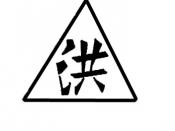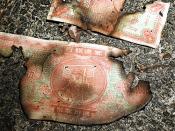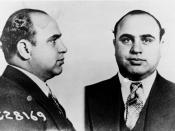Organized Crime The 1920's were a time of hedonism, greed, and crime. Due to the new Eighteenth Amendment, which began prohibition, the sale of alcohol was prohibited and could only be purchased illegally. This turned some small gangs into a highly organized system of crime. Many people wanted alcohol and just because the law said it was illegal didn't meant there weren't ways or obtaining it. The members involved in organized crime realized the profit potential thus expanding their business to one of the nations largest (Bailey, 754). As the profits rolled in, the competition became brutal and the notorious criminals were soon an infamous part of the roaring twenties. The sole purpose of the Eighteenth Amendment was to remove and evil from society. Yet in doing this, they created an even bigger evil. Not only were people drinking alcohol, but they were obtaining it through organized crime. Some business owners sold alcohol in order to remain in good health.
Organized crime is known to have eliminated many competitors (Sagle).
Although organized crime is mainly known for their bootlegging, gangs also partook in prostitution and gambling. Alcohol wetted their taste buds for other corrupt activities.
Many existing and newly formed gangs began to grow in number and in treachery. One of the gangs was located in Detroit. It was the Jewish-member gang called the Purple Gang. The gang was branded with the title the Purple Gang from a conversation between a couple of shopkeepers. While they discussed the horrible and repeating pattern of vandalism among youth, one commented that "They're rotten, purple like the color of bad meat, they're the Purple Gang"ÃÂ (Gribben). The Purple Gang's specialty was merciless hijacking but they enjoyed armed robbery, kidnapping, and gambling just as much (Gribben). Another blemish to the United States was...


